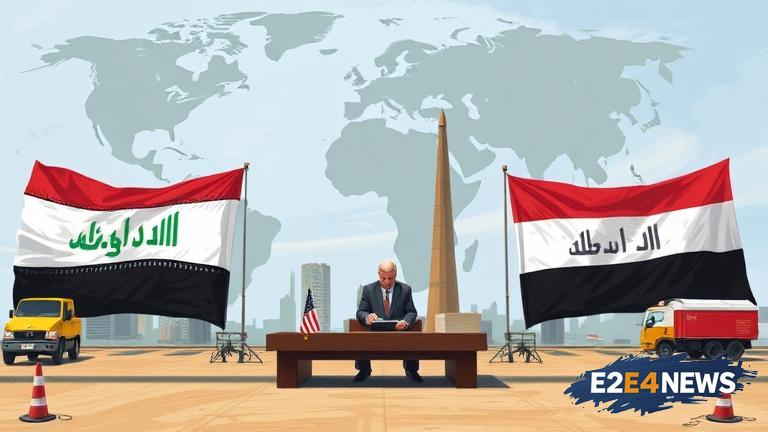In a bid to bolster its economy and enhance global trade relationships, Iraq has announced plans to negotiate tax agreements with three key countries: China, Qatar, and the Czech Republic. This move is expected to facilitate the exchange of goods, services, and investments between Iraq and these nations, ultimately contributing to the growth and diversification of the Iraqi economy. The negotiations are slated to commence soon, with the Iraqi government expressing optimism about the potential outcomes. By establishing clear tax guidelines and regulations, Iraq aims to create a more attractive environment for foreign investors, which could lead to an influx of capital and expertise into the country. China, being one of the world’s largest economies, presents a significant opportunity for Iraq to expand its trade ties and benefit from Chinese investments in infrastructure, energy, and other sectors. Similarly, Qatar, with its substantial wealth and experience in international trade, could provide valuable partnerships for Iraq in areas such as oil and gas, construction, and finance. The Czech Republic, known for its advanced manufacturing and technological capabilities, may offer cooperation opportunities in fields like automotive, aerospace, and renewable energy. These agreements will also enable Iraq to better compete in the global market, increase its exports, and reduce its reliance on oil revenues. Furthermore, the negotiations are seen as a crucial step towards Iraq’s integration into the global economy, allowing it to tap into new markets, technologies, and innovations. The Iraqi government has emphasized its commitment to creating a favorable business climate, with measures such as simplifying bureaucratic procedures, improving infrastructure, and enhancing security. As the country recovers from years of conflict and instability, these efforts are designed to restore investor confidence and stimulate economic growth. The tax agreements are expected to address issues like double taxation, tax evasion, and the exchange of tax-related information, providing clarity and certainty for businesses operating in Iraq. This, in turn, should encourage more companies to invest in the country, generating employment opportunities and contributing to the overall development of the Iraqi economy. In addition to the economic benefits, the negotiations also reflect Iraq’s desire to strengthen its diplomatic relationships with China, Qatar, and the Czech Republic, potentially leading to greater cooperation in areas like culture, education, and tourism. The agreements may also pave the way for Iraq to participate in regional and international trade agreements, such as the Belt and Road Initiative or the European Union’s trade agreements. With its strategic location at the crossroads of the Middle East, Iraq is well-positioned to become a hub for trade and investment, connecting Europe, Asia, and Africa. As the negotiations progress, Iraq will need to balance its desire for foreign investment with the need to protect its national interests and ensure that any agreements are fair and equitable. The country will also need to address concerns around corruption, transparency, and governance, which have historically hindered its ability to attract foreign investment. Nevertheless, the prospect of tax agreements with China, Qatar, and the Czech Republic represents a significant step forward for Iraq, offering a chance to reboot its economy, enhance its global standing, and create a brighter future for its citizens. The negotiations are expected to be complex and challenging, requiring careful consideration of the interests of all parties involved. However, if successful, these agreements could mark the beginning of a new era of economic cooperation and growth for Iraq, with far-reaching consequences for the country and the region as a whole.
